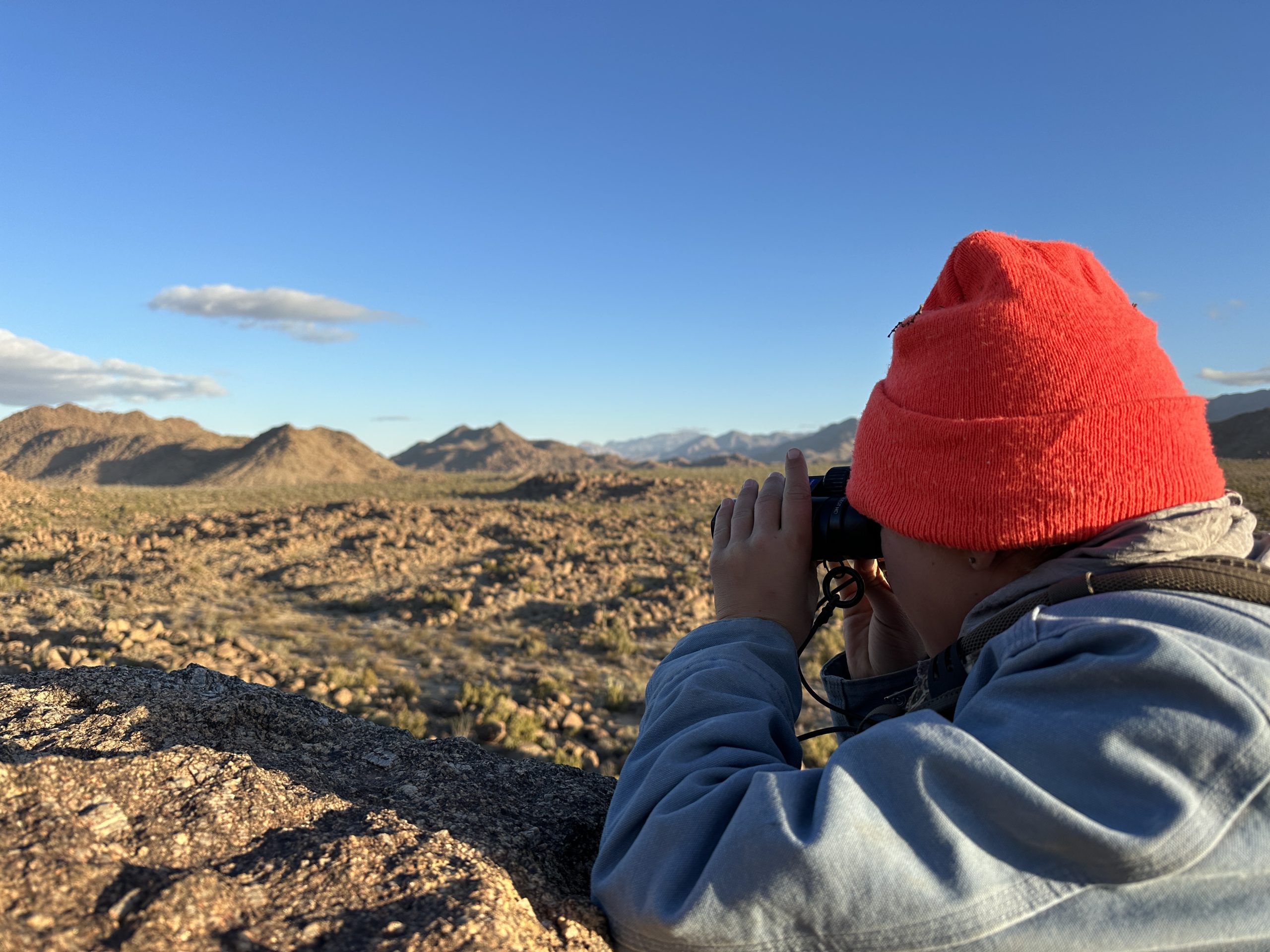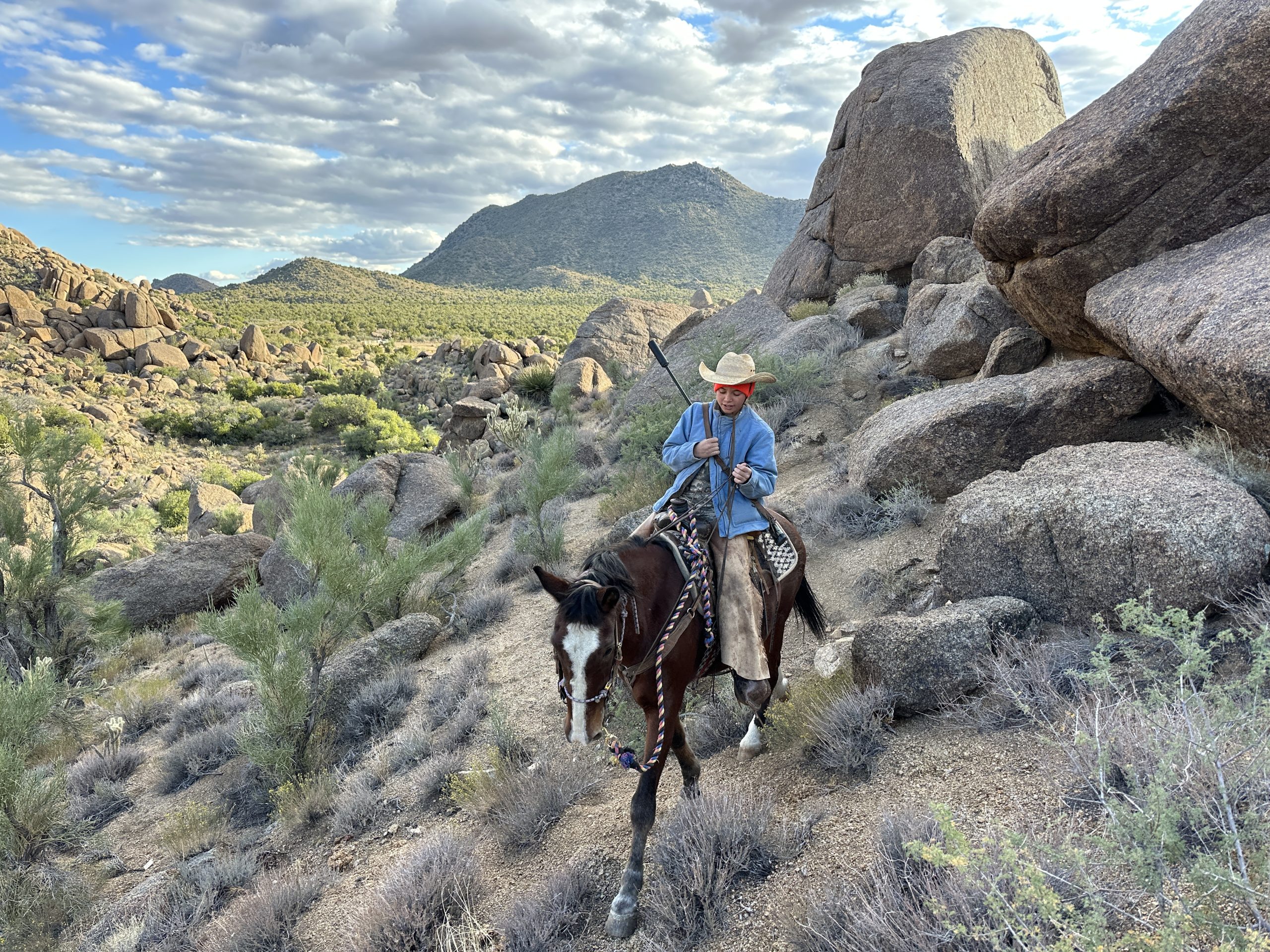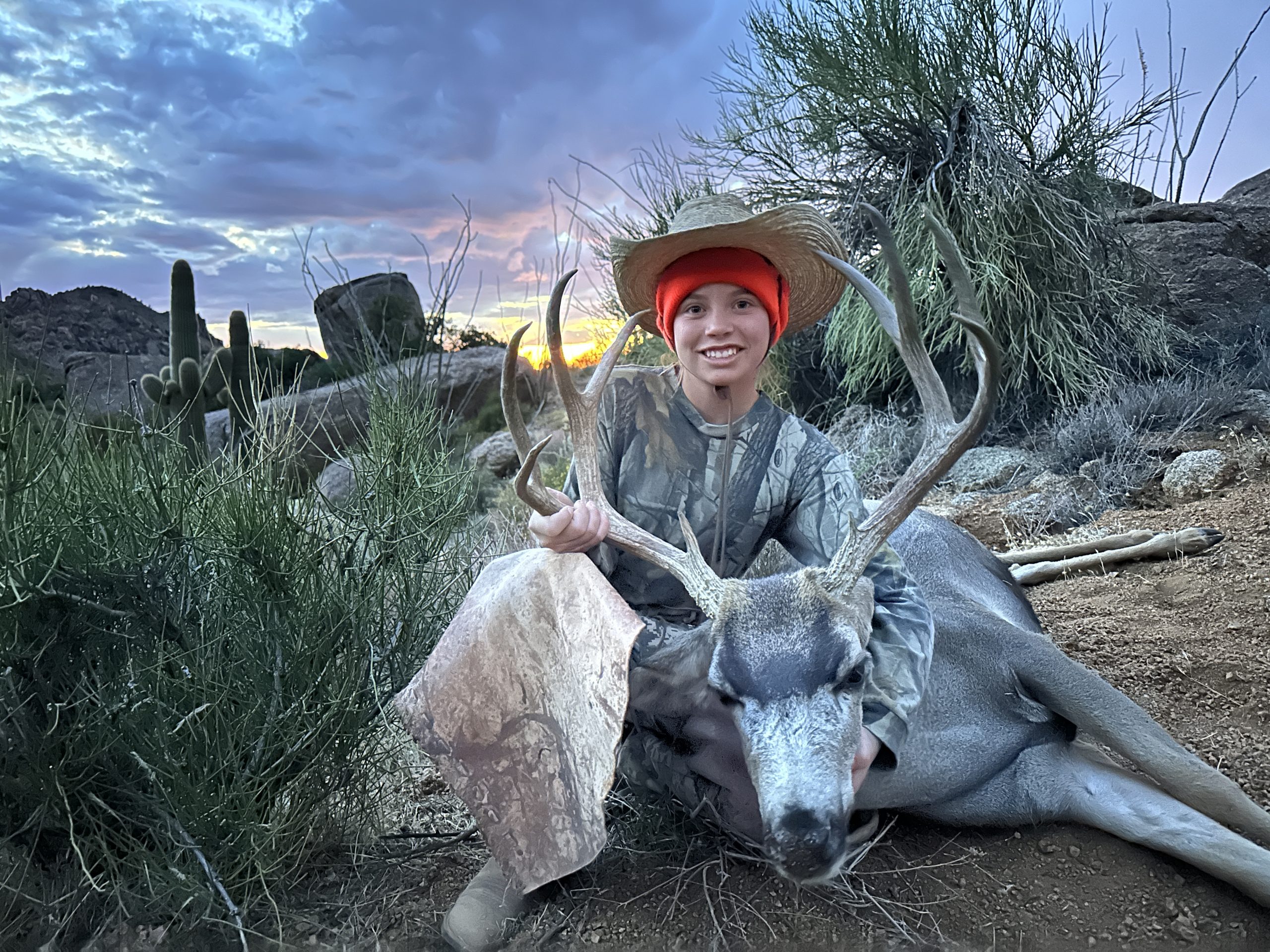Take The Shot: Badlands Mule Deer
by Aram Von Benedikt | Published: Nov 04, 2024
Estimated reading time: 6 minutes
While pushing Southwestern boulder-and-cactus badlands on horseback, a 14-year-old girl jumps a big buck. An hour later, she finally gets a last-minute cross-canyon shot.
Mule deer tags are hard to get these days unless you are blessed enough to live in a state where permits are available over the counter to resident hunters. My family does not. We must apply each spring in hopes that we will draw a tag. And even then, the area we put in for is very difficult to hunt. We often hunt hard all day and never even see a doe.
Table of contents

This year my 14-year-old daughter Elayna drew, along with a couple of other family members. Even though she is a little bitty thing she is a good shot and since she spends vast amounts of time on horseback working cattle, is very capable and comfortable on a horse. (This will become relevant later in the story.) She had harvested two bucks before this hunt, one big muley and one big Coues deer, each with a single shot. This year I was hoping her good luck would prove to be a long-term characteristic.
I say good luck, but the fact is that good training is most important. Her one-shot kills have been a result of careful training blended with good equipment and good judgment. She has worked hard to perfect her positioning and shot execution, practicing with hundreds of dry-fire “rounds”. She is accurate and deadly, a result of good training.

Rifle, Optics, and Ammo
Elayna’s rifle is a lovely little Kimber Mountain Ascent chambered in 6.5 Creedmoor. It sports a 22-inch threaded barrel, a controlled-feed action, and weighs just under five pounds (sans scope and accessories). We mounted a Leupold VX3i 2.5-8X36 in Talley lightweight one-piece mounts and added a Banish Backcountry suppressor up front. A Spartan Javelin Pro bipod completes the system. Remarkably, the rifle will reliably produce legitimate half-moa accuracy. That’s fantastic in such a lightweight little setup.
For binoculars, I usually carry my Zeiss Victory rangefinding unit, but on this trip, my son forgot his binoculars/rangefinder due to being on horseback. I loaned him mine, so for this hunt Elayna and I would need to rely on old-fashioned range estimation. Needless to say, she wouldn’t be shooting very far.
For ammo, Elayna uses Hornady Precision Hunter loaded with 143-grain ELD-X bullets, which exit the barrel at a modest 2665 feet per second and sport a G1 BC of 0.623. The scope has a little ballistic compensating turret on top, and with a laser rangefinder and the proper come-up Elayna is lethal to 600 yards. We much prefer to get as close as possible though, and so far she hasn’t had to shoot nearly that far at a big game animal.

The Badlands Hunt
Late one afternoon, we unloaded our horses at a remote livestock water source. Excited by the abundant tracks we found in the immediate area, we mounted up and began pushing the heavy brush, ragged draws, and boulder piles native to the area. Despite extensive glassing, we had yet to see a deer during this hunt, and we had high hopes that our horseback tactic would pay off. Eventually, it did.
Three does jumped, and a few seconds later a pair of nice bucks. They were trotting away through the boulders and cactus, and we only saw glimpses of antlers as we jockeyed our horses through the mess, trying to get into position for a shot. Leaping off our horses, we ran to the top of a boulder pile, hoping the elevation would give us the vantage we needed for a shot.
Getting Closer
We saw the does but not the bucks, so we ran ahead to the next low ridge and the next. The deer were headed for a high rocky saddle, and we scrambled after them, leather chaps flapping and breath heaving. Nothing. We topped the saddle and worked out to a little point, looking and looking for the deer. Nothing showed, and as the sun set, I figured the game was over. Just as we were about to head back over the saddle and find our horses, I spotted the two bucks across the canyon standing broadside.
Elayna laid her coat across a rock for a shooting rest and settled in for a shot at the bigger of the two bucks. Studying the badlands terrain, I figured the deer were close to 300 yards distant, so I told her to dial for that. Ready, she took a couple of deep breaths and put pressure on the trigger.

Take the Shot?
Put yourself in Elayna’s shoes; you’ve drawn a coveted mule deer tag in your home territory and hunted hard through the badlands in hopes of harvesting a buck. Now, following an adrenaline-packed hour, you suddenly have a great buck in your crosshairs. Your position is excellent and your sight is steady on the buck. But you don’t know exactly what the shot distance is. You guess it’s close to 300 yards, but don’t have any way to know for sure.
Will you take the shot?
Here’s What Happened
Elayna took the shot. The buck dropped in its tracks and never moved again. The bullet impacted high on the deer’s shoulder, taking out the lower part of the spine and the top of the lungs. This made three bucks with three great shots for Elayna, thanks to good training and careful shooting.
READ MORE: TAKE THE SHOT: Monster Mule Deer

Conclusion To The Badlands Hunt
The shot distance was just within my comfortable estimating range. I over-judged the range, it being closer to 200 than 300, which is why Elayna’s bullet impacted a bit high. Still, the outcome was pretty ideal, and I would personally take that shot every time.
This Article
- Category: Big Game, Hunting
EPIC ADVENTURES START HERE!
No spam. Just the latest releases and tips, interesting articles, and early access to exclusive offers and premium content.